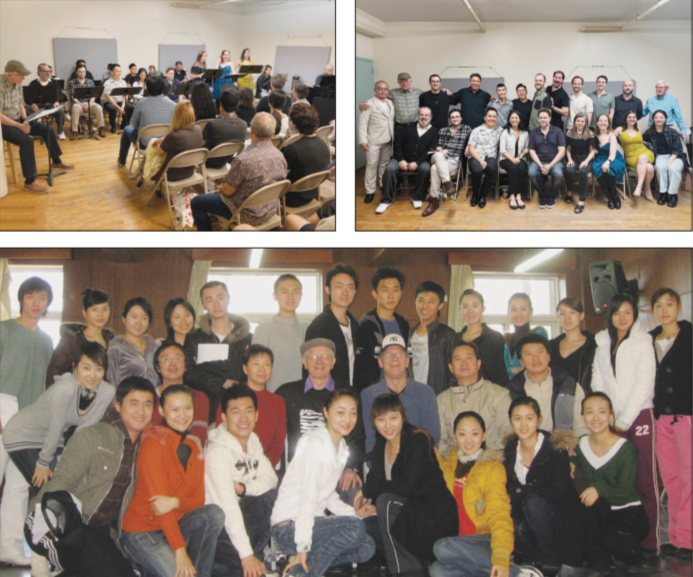Building a cultural 'railroad' between East and West
By Oasis Hu | China Daily Global | Updated: 2023-07-10 14:41

When Stimac returned to the US in 2014, he stumbled on a book about early Chinese immigrants. He was deeply moved by how they had helped build the country's first transcontinental railroad, with their blood, sweat, and tears but how, in return, they were repaid with little other than racism, exclusion, and violence and he felt compelled to bring the story to life, inviting Louis to join him on the journey.
Louis accepted the invitation without hesitation. He was later joined by playwright James Racheff, and the trio soon began the painstaking research and creative process needed to make the story into a musical.
They logged countless hours writing and refining the script, worked tirelessly on draft after draft, and brought in numerous actors to try ideas, over and over again.
Songs were written and discarded. Music composed and abandoned. And, after rewriting the story more than 50 drafts of the script in seven years, tragedy struck: Louis died weeks after completing the score. His death in March 2021 left the world with the music for Railroad!, which was to be his swan song.
Battered by the "devastating loss", Stimac refused to give up.
"Few people are aware of how incredible the Chinese contributions were to building the transcontinental railroad, which helped America achieve its manifest destiny," said Stimac, who added that the story is an essential one, for both Americans and Chinese people.
Zhang Kemin subsequently became the musical's producer. A Chinese Canadian, Zhang, who had been an apprentice under Louis, had followed the creative process of Railroad!, from its inception.
Louis' passing was a wake-up call for Zhang, who realized he could not afford to wait any longer and that it was time to complete the project.
Amid the COVID-19 pandemic and rising anti-Chinese sentiment in North America, Zhang felt it was a crucial time to foster understanding and empathy among diverse communities. As executive director of the Li Delun Music Foundation — a Canadian nonprofit that promotes cultural exchange between East and West through musical events — Zhang has long believed that non-violent demonstrations, such as artistic expressions, are more effective in promoting understanding among ethnic groups than marches and protests.
























